Supplement Diet

Can sports supplements replace a healthy diet ?
Sports supplements can enhance performance and provide targeted nutrients, but cannot replace a healthy diet. Whole foods offer complete nutrition necessary for overall health. Supplements may cause side effects and are expensive. Prioritize a well-balanced diet and use supplements judiciously to support specific goals.

How do I choose the right sports nutrition supplement for my specific sport or activity ?
When it comes to sports nutrition, supplements can playWhen it comes to sports nutrition, supplements can play performance, recovery, and overall supplements can play a crucial role in enhancing performance, recovery, and overall health. However, with so many options available on the market, it can be challenging to determine which supplement is best suited for your specific sport or activity. Here are some tips to help you make an informed decision: - Identify Your Goals: Before choosing a sports nutrition supplement, it's essential to identify your goals. Are you looking to increase endurance, build muscle, lose weight, or improve recovery? Different supplements are designed to address different needs, so understanding your objectives will help you narrow down your options. - Research the Types of Supplements Available: There are various types of sports nutrition supplements, including protein powders, amino acids, creatine, beta-alanine, and pre-workout formulas. Each type of supplement has its unique benefits and drawbacks, so it's crucial to research each option thoroughly before making a decision. - Consider Your Dietary Needs: Your dietary needs play a significant role in determining which sports nutrition supplement is right for you. For example, if you're following a plant-based diet, you may need to look for vegan-friendly supplements that provide essential nutrients like iron, calcium, and vitamin B12. Additionally, if you have any food allergies or sensitivities, it's important to check the ingredients list of potential supplements to ensure they don't contain any allergens. - Evaluate Brand Reputation and Quality Assurance: Not all sports nutrition supplements are created equal. It's crucial to choose a reputable brand that prioritizes quality assurance and third-party testing. Look for brands that are transparent about their manufacturing processes and ingredient sourcing. Reading customer reviews and seeking recommendations from other athletes or coaches can also help you make an informed decision. - Consult with a Healthcare Professional: Before starting any new supplement regimen, it's always a good idea to consult with a healthcare professional, such as a registered dietitian or sports medicine physician. They can provide personalized advice based on your individual needs and help you avoid potential interactions with medications or existing health conditions. - Start with Small Doses and Monitor Effects: Once you've chosen a sports nutrition supplement, start with small doses and monitor how your body responds. Pay attention to any changes in energy levels, recovery time, or overall performance. If you experience any adverse effects or don't notice any improvements after several weeks, consider trying a different supplement or adjusting your dosage. In conclusion, choosing the right sports nutrition supplement requires careful consideration of your goals, dietary needs, and individual preferences. By researching your options, evaluating brand reputation, consulting with healthcare professionals, and monitoring your body's response, you can find a supplement that supports your specific sport or activity and helps you achieve optimal performance.

How do I ensure I'm getting enough nutrients on a vegetarian diet ?
This topic discusses the essential nutrients to watch on a vegetarian diet and provides tips for meal planning. It highlights key nutrients such as protein, iron, vitamin B12, calcium, vitamin D, and omega-3 fatty acids and suggests food sources for each. The text also emphasizes the importance of diversifying intake, considering supplementation, having regular check-ups, and working with a professional to create a balanced meal plan. Overall, it offers guidance on ensuring adequate nutrient intake while following a vegetarian diet.

Can taking sports nutrition supplements compensate for a poor diet and lack of exercise ?
Sports nutrition supplements cannot fully compensate for a poor diet and lack of exercise. While these supplements can provide certain nutrients essential for athletic performance, they cannot replace the overall benefits of a healthy lifestyle. A balanced diet and regular exercise are crucial for maintaining good health and supporting athletic performance. Supplements should be used cautiously and with guidance from a healthcare professional to ensure they complement your overall lifestyle rather than replace it.

How can women ensure they are getting enough calcium in their diet ?
Calcium is crucial for women's health, especially for maintaining strong bones and teeth. Women can ensure they are getting enough calcium by knowing their requirements, including calcium-rich foods in their diet, considering supplements if needed, and maintaining a healthy lifestyle with regular exercise and limited alcohol consumption. It's important to consult with a healthcare professional for personalized advice.
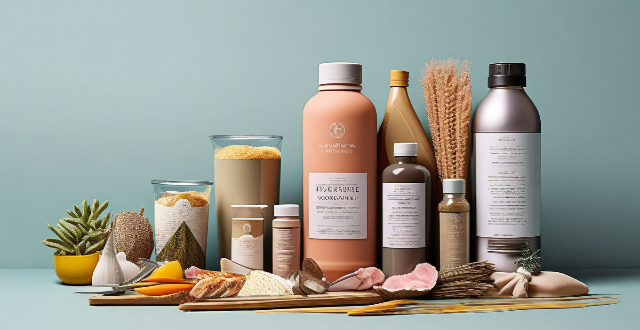
What are the best sports supplements for weight loss ?
Sports supplements can aid in weight loss, but they cannot replace a healthy diet and exercise. Protein powder, pre-workout supplements, fat burners, multivitamins, and fish oil are among the best options. However, it's crucial to use these supplements responsibly and consult with a healthcare professional before starting any new regimen.

What are the most popular sports supplements ?
The most popular sports supplements include protein powders, creatine monohydrate, beta-alanine, caffeine, BCAAs, and multivitamins/minerals. These supplements offer benefits such as muscle growth, increased strength, improved endurance, and faster recovery. However, they should not replace a balanced diet and proper training regimen. Consultation with a healthcare professional is recommended before starting any new supplement regimen.
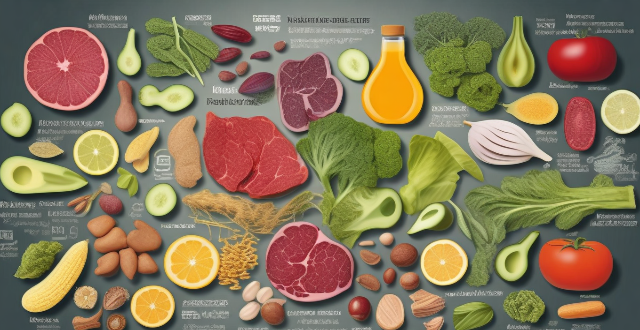
How does diet affect personal health ?
The article discusses the importance of a healthy diet in maintaining good health. It explains what constitutes a healthy diet and its benefits, such as reducing the risk of chronic diseases, improving mental health, managing weight, strengthening the immune system, and improving sleep quality. The article also provides tips for maintaining a healthy diet, including eating a variety of foods, limiting processed foods, watching portion sizes, being mindful of eating habits, getting enough sleep, and staying active.

Is it necessary to take supplements for sports nutrition ?
Supplements for sports nutrition are a controversial topic, with some athletes swearing by them and others considering them unnecessary or even harmful. The necessity of taking such supplements depends on various factors including an individual's diet, training intensity, and specific goals. Sports nutrition supplements come in various forms like pills, powders, bars, and liquids, and include protein supplements, creatine, beta-alanine, caffeine, BCAAs, pre-workout formulas, and post-workout formulas. While a balanced diet can provide most of the nutrients needed for optimal athletic performance, there are certain situations where supplements may be beneficial. These include inadequate nutrient intake from food alone, high-intensity or endurance training, and specific goals or deficiencies. However, there are also potential risks associated with taking sports nutrition supplements, such as overconsumption and imbalanced nutrient intake, contamination and quality concerns, and interactions with medications or other supplements. Therefore, it is essential to choose reputable brands, check for third-party certifications whenever possible, and consult with a healthcare professional before starting any new supplement regimen. In conclusion, whether or not it is necessary to take supplements for sports nutrition depends on individual circumstances. While they can offer benefits for certain athletes and scenarios, they should not replace a well-rounded diet rich in whole foods. Before incorporating any supplements into your routine, consider your specific needs and goals and consult with a qualified healthcare professional or registered dietitian for personalized advice.
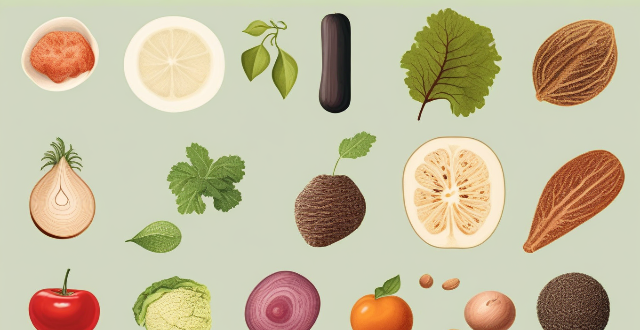
What kind of diet do celebrities follow ?
Celebrities maintain their physique and appearance through various diets, each with its benefits. Clean eating focuses on whole foods, boosting energy and digestion while aiding weight loss. The vegan diet eliminates animal products, reducing the risk of chronic diseases and improving skin health. The keto diet promotes rapid weight loss, increased energy levels, and reduced inflammation. While these diets work for some celebrities, individual needs vary, and it's essential to consult a healthcare professional before making significant changes to one's diet or lifestyle.

Are sports nutrition supplements necessary for casual athletes, or only for professionals ?
The text discusses the necessity of sports nutrition supplements for both professional and casual athletes. Professional athletes often require such supplements due to their intensive training regimens, which can deplete essential nutrients and energy stores. On the other hand, casual athletes typically aim for health benefits and moderate fitness improvements, which can usually be achieved through a balanced diet without extra supplementation. The text emphasizes the importance of consulting with a healthcare professional before starting any supplement regimen, understanding individual needs, researching evidence-based products, and monitoring potential side effects. In conclusion, while sports nutrition supplements can be beneficial for professional athletes, they are generally not necessary for casual athletes who can meet their nutritional needs through a well-rounded diet.
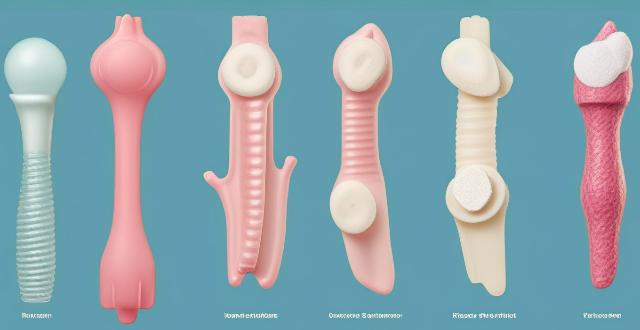
Can sports supplements improve athletic performance ?
Sports supplements claim to enhance athletic performance, but their effectiveness varies. Common types include protein, creatine, pre-workout, BCAAs, and multivitamins/minerals. Some studies support their benefits, especially when used correctly and in conjunction with proper nutrition and training. However, potential downsides include health risks, unproven claims, and high costs. Consult a healthcare professional before using sports supplements to ensure they align with individual goals and health status.

What is a good marathon diet plan ?
A good marathon diet plan should provide the necessary nutrients and energy to support an athlete's training and performance during a marathon. It should include a high-carbohydrate diet, protein needs, and healthy fats. A high-carbohydrate diet should provide around 60-70% of total daily calories from carbohydrates, while protein needs should provide around 10-20% of total daily calories. Healthy fats should make up around 20-35% of total daily calories. Good sources of carbohydrates include whole grains, fruits, vegetables, legumes, and low-fat dairy products. Good sources of protein include lean meats, poultry, fish, eggs, nuts, seeds, and plant-based proteins like tofu and tempeh. Good sources of healthy fats include olive oil, avocados, nuts, seeds, fatty fish (such as salmon), and dark chocolate.

What are the benefits of taking vitamin supplements for women ?
The text discusses the benefits of taking vitamin supplements for women, including improved overall health, better skin health, reduced risk of chronic diseases, boosted immune system function, and improved mental health. It also emphasizes the importance of consulting with a healthcare professional before starting any new supplement regimen.

Are there specific supplements recommended for women's health upkeep ?
The article provides a summary of the top supplements recommended for women's health, including Vitamin D, Calcium, Iron, Folic Acid, and Omega-3 Fatty Acids. These supplements support bone health, muscle function, immune function, cardiovascular health, cognitive function, and overall energy levels. The article emphasizes the importance of consulting with a healthcare provider before starting any new supplement regimen to ensure safety and effectiveness.
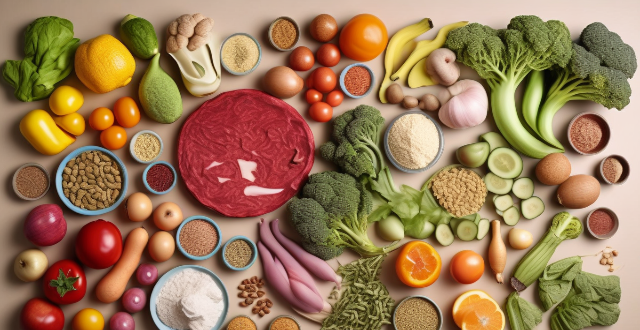
How can a healthy diet improve women's reproductive health ?
A healthy diet is crucial for women's reproductive health, affecting fertility, pregnancy, and menstrual health. Essential nutrients like folic acid and iron support conception and hormone regulation. Calcium, vitamin D, and magnesium can reduce PMS symptoms, while iron-rich and antioxidant-rich foods improve period health. During pregnancy, nutrients like folic acid and iodine are crucial for fetal development, and fiber and hydration maintain maternal health. A balanced diet can also prevent gynecological issues like fibroids and ovarian cysts. Additionally, weight management and mental health through a healthy diet promote overall well-being. Consulting healthcare professionals for personalized dietary advice is recommended.

Can diet and exercise affect memory according to scientific studies ?
Diet and exercise can positively impact memory, asDiet and exercise can positively impact memory, as a healthy lifestyle that promote cognitive while regular physical activity increases blood flow to the brain, reduces inflammation, and promotes the growth of new neurons. Conversely, a poor diet lacking in essential nutrients and lack of exercise can have negative effects on memory over time. Therefore, adopting a healthy lifestyle that includes a balanced diet and regular exercise is essential for maintaining good memory and overall brain health.
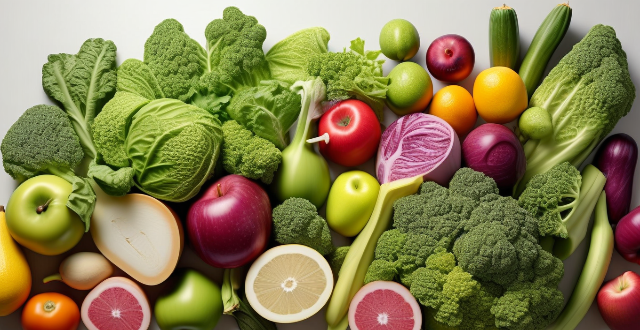
How can I improve my athletic performance through diet
Improving athletic performance through diet involves eating a balanced diet, increasing protein intake, consuming plenty of fruits and vegetables, drinking enough water, avoiding processed foods, eating before training or competition, and considering supplements. A balanced diet includes carbohydrates, proteins, and healthy fats in the right proportions. Protein is essential for building muscle and repairing damaged tissues, while fruits and vegetables are rich in vitamins, minerals, and fiber. Drinking enough water is crucial for staying hydrated during exercise. Avoiding processed foods can prevent harm to your performance and health. Eating before training or competition can provide energy and prevent fatigue. Supplements such as whey protein powder, amino acids, and BCAAs can improve performance but should be taken under the guidance of a nutritionist or doctor.

What kind of diet do celebrities follow for a healthy lifestyle ?
Celebrities often follow specific diets to maintain their health and appearance, including the Mediterranean, Vegan, Paleo, Keto, Intermittent Fasting, Juicing, Plant-Based, Clean Eating, DASH, and Mindful Eating diets. These diets offer various benefits such as weight loss, improved heart health, better digestion, and enhanced mental clarity. Celebrities like Jennifer Aniston, Beyoncé, Matthew McConaughey, Halle Berry, Hugh Jackman, Salma Hayek, Ellie Goulding, Gwyneth Paltrow, Queen Latifah, Adele, and Jennifer Lawrence have incorporated these diets into their lifestyles.
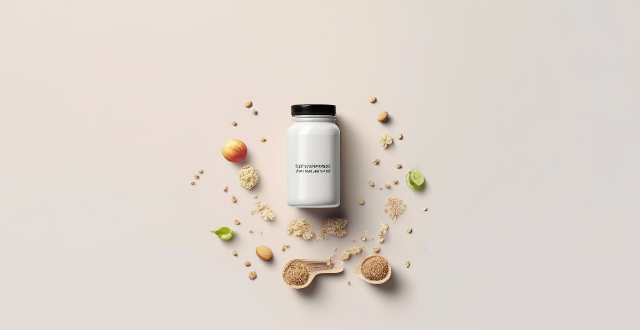
Are there any potential side effects of switching to a gluten-free diet ?
Switching to a gluten-free diet can have several potential side effects, including nutrient deficiencies, digestive issues, weight gain, headaches and fatigue, and higher cost. It is important to be aware of these potential side effects and take steps to ensure adequate nutrition on a gluten-free diet. Consultation with a healthcare professional is recommended before making any significant changes to your diet.
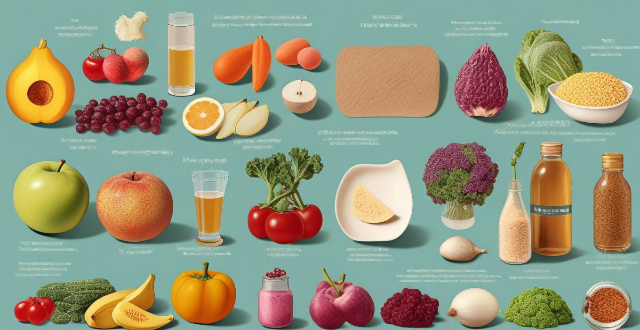
What are the potential risks associated with a high-fat diet ?
A high-fat diet, particularly one rich in saturated and trans fats, can pose several health risks. These include an increased risk of cardiovascular disease, obesity and weight gain, type 2 diabetes, liver disease, cancer, and digestive issues. It is essential to maintain a balanced diet that includes healthy fats while limiting the intake of saturated and trans fats found in processed foods and fried foods.

Which diet plans do celebrities follow to keep themselves fit and healthy ?
Celebrities are often seen as epitomes of fitness and health, inspiring millions to follow their lifestyle choices. One of the most significant aspects of their routine is their diet plan. Let's take a closer look at some popular diet plans followed by celebrities to maintain their physique and overall well-being: 1. Intermittent Fasting 2. Plant-Based Diet 3. Ketogenic Diet 4. Mediterranean Diet 5. Juicing Diet

How should I choose the right sports supplement for me ?
When selecting a sports supplement, consider your fitness goals, research ingredients, read reviews, consult professionals, and start with a small dose.

Can following a vegetarian or vegan diet be considered healthy ?
A vegetarian or vegan diet can indeed be considered healthy, but it depends on how well-planned and balanced the diet is. Here's a detailed analysis: ## **Nutritional Requirements** ### *Protein* Vegetarians can get protein from sources like beans, lentils, tofu, tempeh, and dairy products. Vegans need to rely on plant-based proteins such as legumes, grains, nuts, and seeds. ### *Iron* Plant-based sources of iron include leafy greens, beans, and fortified cereals. However, the absorption rate of non-heme iron (from plants) is lower than heme iron (from animals). Consuming vitamin C-rich foods can enhance iron absorption. ### *Calcium* Vegetarians can get calcium from dairy products. Vegans need to find sources like fortified plant milks, tofu, and certain greens. ### *Vitamin B12* This nutrient is only found naturally in animal products. Vegetarians who consume dairy or eggs don't usually have a deficiency, but vegans must rely on fortified foods or supplements. ### *Omega-3 Fatty Acids* Flaxseeds, chia seeds, hemp seeds, and algae-based supplements are good sources for vegans. Vegetarians can also get it from fish. ## **Potential Health Benefits** - **Lower Risk of Chronic Diseases**: Studies show that vegetarian and vegan diets can reduce the risk of heart disease, high blood pressure, type 2 diabetes, and obesity. - **Healthier Weight**: Plant-based diets tend to be lower in calories and higher in fiber, leading to better weight management. - **Rich in Antioxidants**: Fruits, vegetables, whole grains, and legumes are rich in antioxidants, which help fight inflammation and cellular damage. ## **Challenges and Considerations** - **Nutrient Deficiencies**: Without proper planning, vegetarians and especially vegans may face deficiencies in certain nutrients like vitamin B12, iron, calcium, and omega-3 fatty acids. - **Limited Food Choices**: Avoiding entire food groups can make meal planning more challenging and limit variety. - **Social and Cultural Factors**: Eating out or attending social events where vegetarian or vegan options are not readily available can be difficult. ## **Conclusion** Adopting a vegetarian or vegan diet can be very healthy if it is well-planned and balanced to meet all nutritional needs. It's essential to ensure adequate intake of key nutrients that might be lacking in plant-based diets. Consulting with a registered dietitian can help individuals navigate these challenges and create a sustainable, healthy eating plan.

How can I improve my diet to boost my immune system ?
Improving your diet is one of the best ways to boost your immune system. Here are some tips on how you can do that: ## Eat a Variety of Foods Eating a variety of foods ensures that you get all the essential nutrients your body needs. This includes fruits, vegetables, whole grains, lean proteins, and healthy fats. Aim for at least five servings of fruits and vegetables per day. ### Fruits and Vegetables - Apples - Bananas - Berries - Broccoli - Carrots - Spinach ### Whole Grains - Oats - Quinoa - Brown Rice ### Lean Proteins - Chicken breast - Fish (such as salmon or tuna) - Legumes (such as lentils or chickpeas) ### Healthy Fats - Avocados - Nuts (such as almonds or walnuts) - Seeds (such as chia or flaxseed) ## Stay Hydrated Drinking enough water is crucial for maintaining a healthy immune system. Aim for at least eight glasses of water per day, and more if you're active or it's hot outside. You can also stay hydrated by drinking herbal teas or eating water-rich foods like cucumbers, melons, and strawberries. ## Limit Processed Foods and Sugary Drinks Processed foods and sugary drinks can weaken your immune system by causing inflammation in your body. Try to limit these foods and drinks as much as possible, and opt for whole, nutrient-dense foods instead. ## Consider Taking Supplements If you're not getting enough vitamins and minerals from your diet, consider taking supplements. Some common supplements that may help boost your immune system include vitamin C, vitamin D, zinc, and probiotics. However, be sure to talk to your doctor before starting any new supplements.

Is it necessary to follow a high-protein diet for strength training
A high-protein diet can be beneficial for strength training, but it is not absolutely necessary as long as enough protein is consumed to support muscle growth and repair. Reasons for a high-protein diet include muscle repair and growth, increased metabolism, satiety, and improved recovery. However, the amount of protein needed varies based on individual factors, and general guidelines for intake during strength training are 0.8-1.2 grams per kilogram of body weight, with a source of protein consumed within 30-60 minutes after a workout. High-quality sources of protein should also be chosen.

How should I incorporate sports nutrition supplements into my daily routine for optimal results ?
The text provides a comprehensive guide on how to incorporate sports nutrition supplements into your daily routine for optimal results. It starts with understanding the basics of sports nutrition and assessing individual goals and needs. It then discusses different types of supplements, their timing of intake, and how to incorporate them into various parts of the day. The text emphasizes the importance of monitoring and adjusting supplement use based on personal experiences and advises consulting with a professional for personalized advice.

What are some easy ways to reduce sugar intake in my diet ?
Reducing sugar intake is crucial for a healthy lifestyle. Here are ways to reduce sugar in your diet: read food labels, avoid sugary drinks, choose whole foods, cook at home, swap sweet treats for healthier options, limit added sugars in beverages, and gradually reduce sugar intake. By following these steps, you can significantly lower your sugar consumption and improve your overall health.